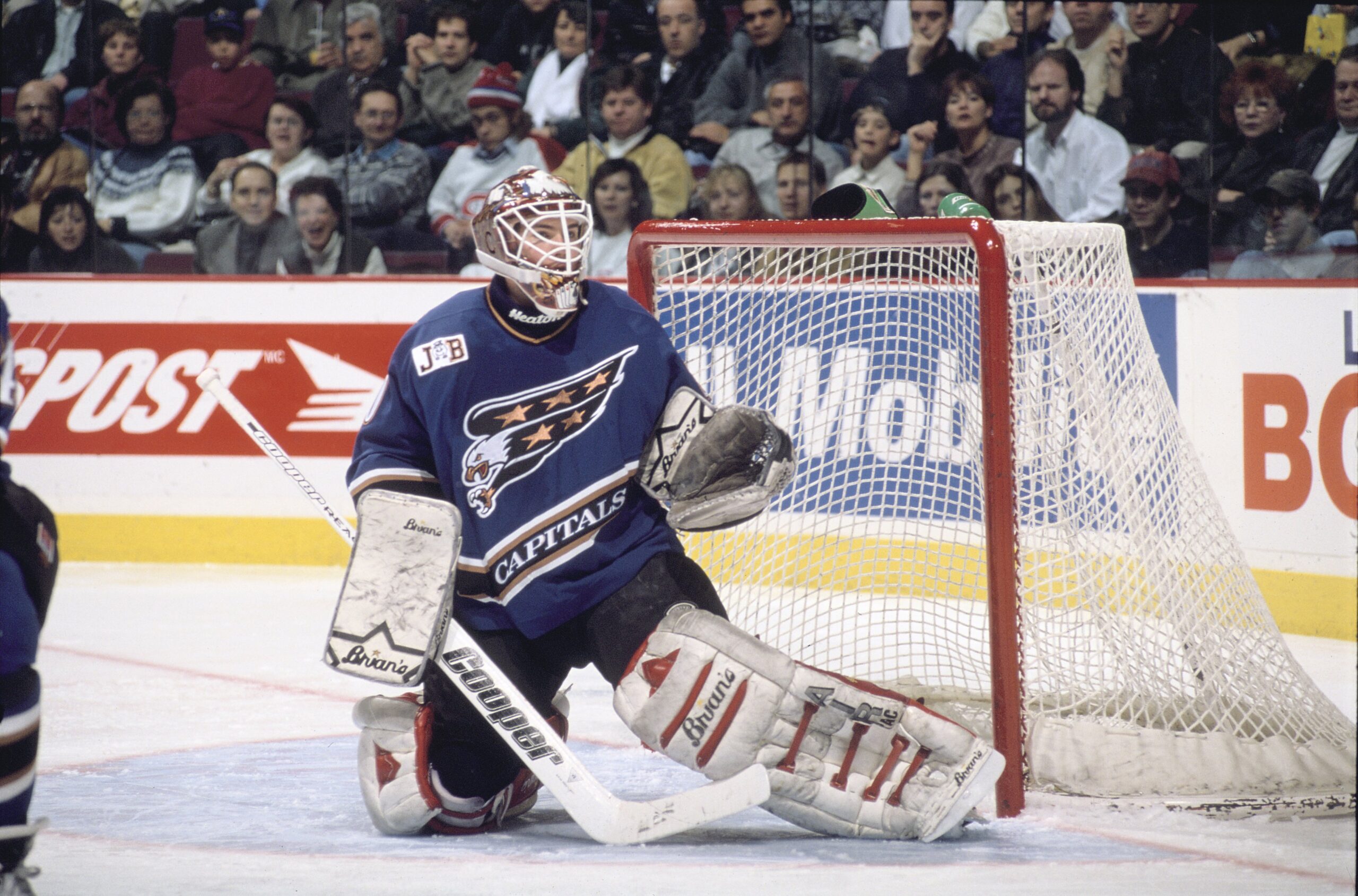

Jim Carey, born on May 31, 1974, in Dorchester, Massachusetts, had a meteoric rise and a swift departure from the NHL, leaving fans wondering what could have been. Drafted 32nd overall in the 1992 NHL Entry Draft by the Washington Capitals, Carey's career was marked by early brilliance and a Vezina Trophy win in 1996, followed by a rapid decline and early retirement.
Carey's journey to the NHL began with a year at the University of Wisconsin before turning pro. He then joined the Portland Pirates of the AHL, where he quickly established himself as a top prospect. In the 1994-95 season with Portland, Carey earned the Dudley "Red" Garrett Memorial Award as the AHL's top rookie and the Aldege "Baz" Bastien Memorial Award as the league's best netminder. He was also selected to the AHL First All-Star Team.
His NHL debut with the Washington Capitals in the 1994-95 season was impressive, going undefeated in his first seven games. He finished the season with an 18-6-3 record and a 2.13 goals-against average (GAA). Carey's stellar performance earned him a spot on the NHL All-Rookie Team and he even supplanted veteran goalies like Byron Dafoe and Olaf Kolzig as the team's starter. Although the Capitals lost to Pittsburgh in the first round of the playoffs, Carey was voted third for the Vezina Trophy that year.
The 1995-96 season was the pinnacle of Carey's career. As the Capitals' starting goalie, he played 71 games, recording 35 wins, nine shutouts, and a 2.26 GAA. His outstanding performance led to him winning the Vezina Trophy, awarded to the NHL's best goaltender. He was also selected to the NHL First All-Star Team. Adding to his achievements, Carey was the backup goalie for Team USA in the 1996 World Cup of Hockey, where they won the championship against Team Canada.
However, Carey's success was short-lived. In the 1996-97 season, his performance declined, and he was traded to the Boston Bruins in a blockbuster deal involving Adam Oates, Bill Ranford, and Rick Tocchet. Carey struggled to find his form in Boston and was eventually sent down to the AHL's Providence Bruins. After being released by the Bruins, he signed with the St. Louis Blues but played only four games before retiring at the end of the 1998-99 season.
In his NHL career, Jim Carey played 172 games, achieving a 79-65-16 record with a 2.58 GAA and a .898 save percentage. He recorded 16 shutouts. Despite his short career, Carey's impact was significant, particularly during his time with the Capitals. He holds the Washington Capitals' record for career-lowest GAA (2.37). He also briefly held the record for the lowest GAA in a single season (2.13 in 1995).
Several factors contributed to Carey's early retirement. Some suggest that he lost confidence after being "lit up high on his glove side" by Mario Lemieux and the Penguins in the playoffs. Others believe that Carey's interests lay outside of hockey. According to his coach at Wisconsin, Jeff Sauer, Carey wanted to get away from hockey because it "wasn't fun anymore". Kolzig noted that Carey didn't want to interact with hockey or answer questions about his career after he retired.
After retiring from hockey, Carey pursued his education, earning a degree in finance. He is currently the president and CEO of OptiMED Billing Solutions, Inc., a medical billing company based in Boston and Sarasota, Florida.
Jim Carey's career, though brief, remains a memorable chapter in Washington Capitals history. His outstanding talent and Vezina Trophy win captivated fans, earning him nicknames like "The Net Detective", "Ace", and "The Mask". While his time in the NHL was short, Carey's early brilliance left an indelible mark on the league.